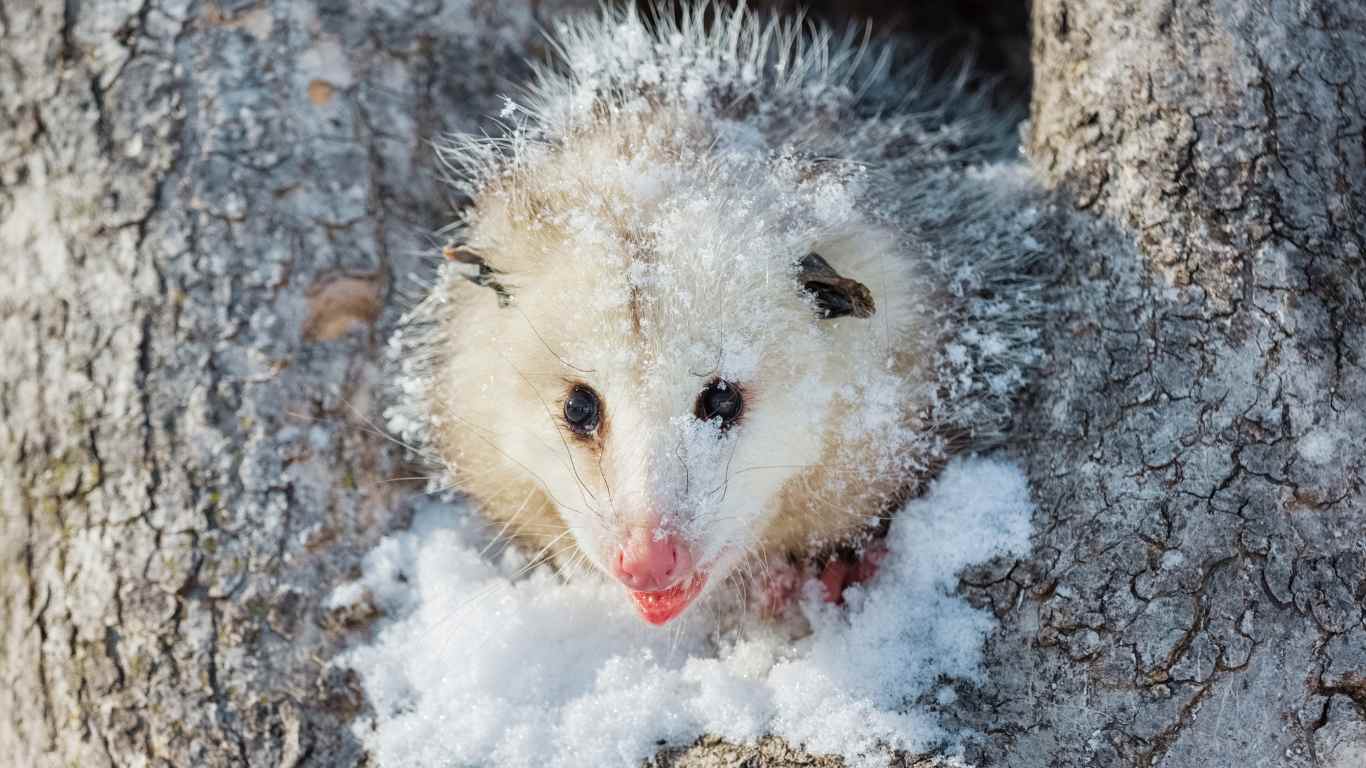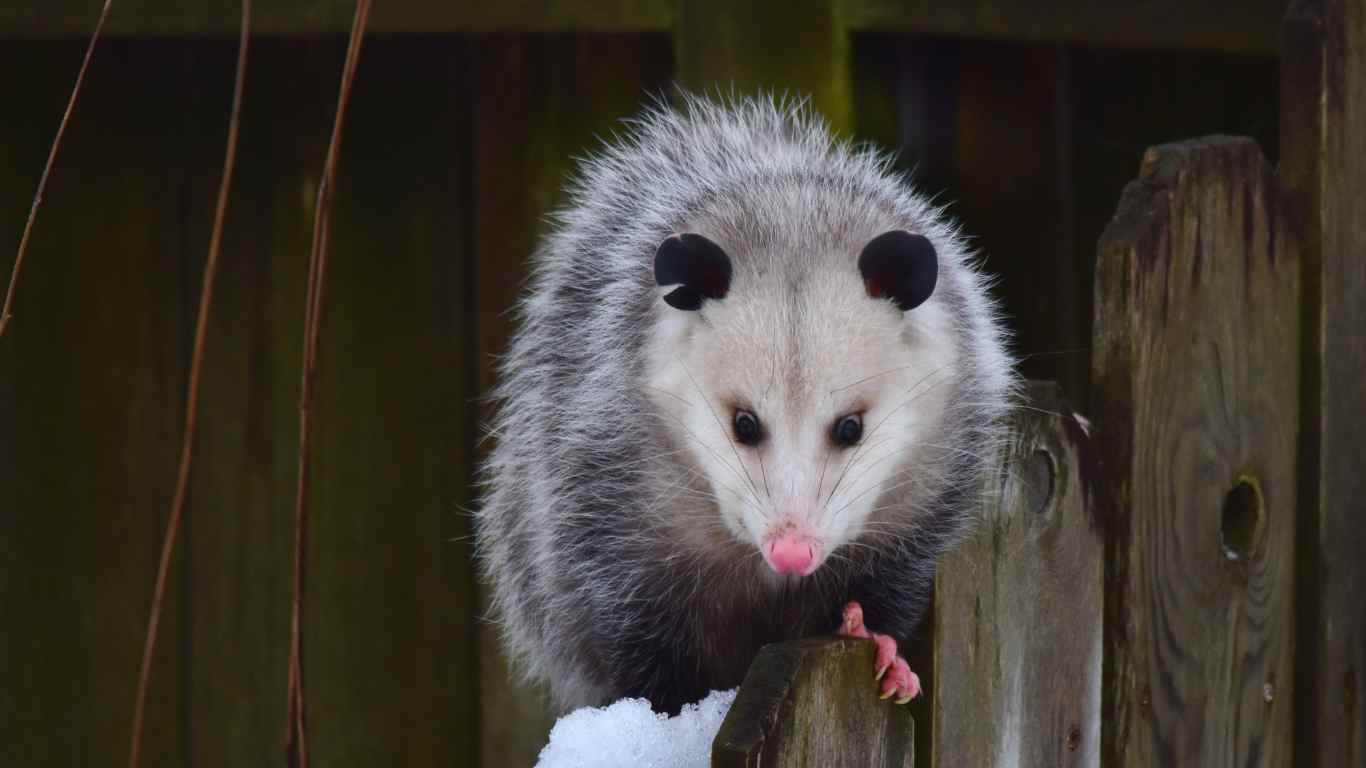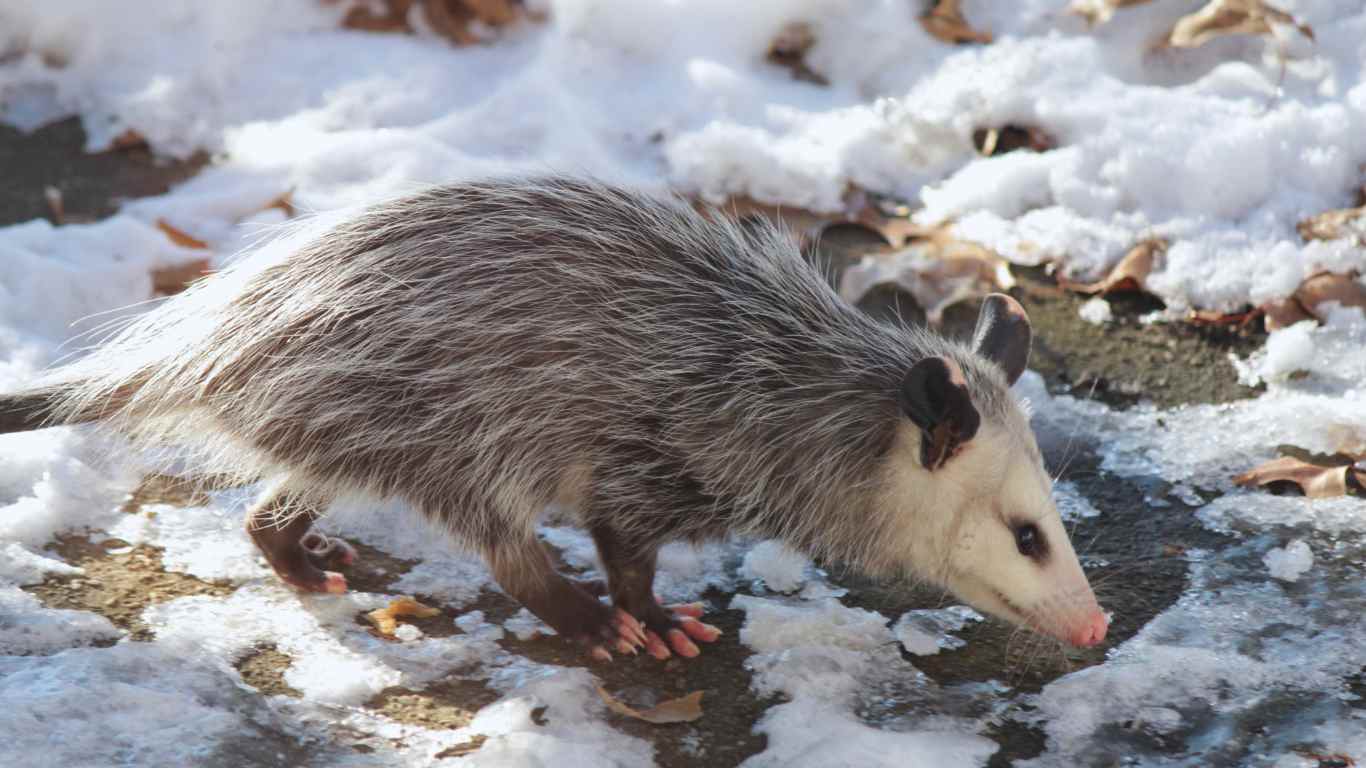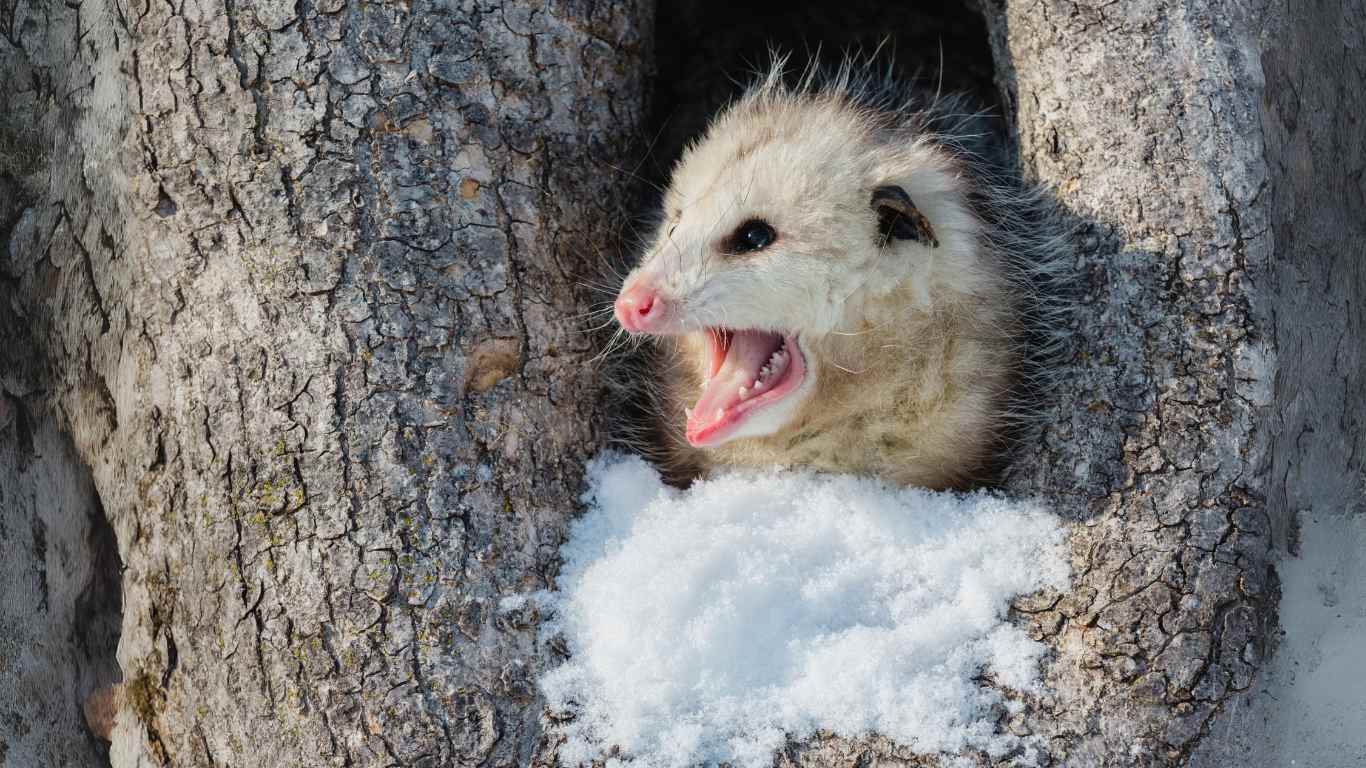Do Opossums Hibernate? Facts About Possum Winter Habits
Did you know opossums don’t hibernate in winter? Do opossums hibernate? Unlike other mammals, they don’t sleep all winter by storing fat. Instead, opossums adjust their lifestyle and habitat to deal with the cold. This shows their great ability to adapt.
To keep warm, these night-time animals change their food search to daytime, when it’s warmer. They’ll also stay in one place longer to keep cozy. Because their tails, paws, and ears can get frostbite, they look for warm spots. That’s why they might sneak into places like basements or garages, attracted by the heat and possible food.
Do Opossums Hibernate? Core Insights:
Understanding Opossum Winter Behavior
In the cold months, opossums must find ways to survive the night. They live from the United States to South America. To deal with the cold, they change their habits.
How Opossums Deal with Cold Weather
Opossums slow down and look for dens when it gets cold. These dens have dry leaves and grass for warmth. This keeps them safe and warm.
If it’s not too cold, they might look for food during the day. But in harsh cold, they stay in to avoid frostbite.
Typical Winter Behavior for Opossums
Opossums stay near their dens to avoid the cold. They find shelter in nature or in places like basements. This is part of their survival strategy.
In winter, opossums aren’t very active. They focus on staying alive rather than having babies. They mainly look for safe, warm places to spend the cold months.
Here’s a table that shows more about opossums:
| Characteristic | Detail |
|---|---|
| Species Count | More than 60 |
| Length | About 2.5 feet |
| Weight | Between 8.8 to 13.2 lbs |
| Regions Found | United States, South America, Canada, Mexico, Central America |
| Preference | Wet areas like marshes, swamps, and streams |
| Reproduction | Twice a year, up to 20 young |
| Maternal Care Duration | 100 days |
| Activity | Mostly nocturnal, may be active during the day in winter |
| Conservation Status | Least concern |
| Defensive Behavior | Playing dead up to 6 hours |
| Immunity | Snake bites, bee stings, & toxins |
Do Opossums Hibernate?
Opossums don’t really hibernate when it’s cold. They slow down and stay in their dens a lot, keeping their bodies going.
Misconceptions About Opossum Hibernation
Many believe opossums hibernate in winter, but this isn’t true. They stay active, finding shelter in places like buildings and wood piles to escape the cold.
It’s also thought they dig their homes. But they usually take over spots left by other animals.
Differences Between Hibernation and Dormancy
Hibernation and dormancy are not the same. Hibernators “shut down” their body functions. Dormant animals like opossums keep a stable body temperature and stay alert.
Opossums change what they eat to survive the cold. They eat almost anything they can find, like trash or pet food. This helps them stay alive when it’s harder to find food.
Even though opossums don’t hibernate, they have ways to get through the winter. Their dormancy and flexible diet play key roles in their survival.

How Opossums Find Shelter During Winter
As winter gets closer, opossums look for safe places to stay warm. People often ask, do opossums sleep in winter? They don’t hibernate, but they find cozy spots to survive the cold. They use smart ways to keep warm during winter.
Natural Shelters: Logs and Trees
Opossums like natural spots like logs, trees, and rock holes for warmth. These places keep them safe from enemies and bad weather. They also use burrows from other animals as a good opossum shelter.
They make their homes cozy with leaves and stuff to keep the heat in. This helps them stay warm.

Man-Made Shelters: Basements and Garages
When it’s really snowy, opossums sometimes go into human places to find warmth. They sneak into basements, garages, and attics to escape the cold. These spots often become a comfy opossum shelter for them.
To stop them from coming in, it’s smart to block those areas off. This helps keep both sides happy.
Opossums are really clever in finding shelter for the winter. They can handle both the wild and places made by humans. This skill is key for them to make it through the cold season.
Challenges Opossums Balance with Frostbite
Opossums face big problems with frostbite when they move into colder places like central and southern Maine, central New Hampshire, and Vermont. The coldest parts, like ears and tails, get hurt because they don’t have much fur. This often results in damage after being in the cold too long.

Virginia opossums are out in the cold because they don’t sleep away the winter. This makes them more likely to get frostbite, which can mean losing parts of their bodies. Besides frostbite, they also have to deal with a short life – usually only 36 months in the wild.
Even with these troubles, opossums are moving further north, even to Ontario. But living close to humans brings other dangers like cars and predators. Research shows cars kill 35% of opossums tracked with radios or tags, and traps kill another 13%. These challenges, along with the cold, show how hard winter is for opossums.
Opossum Diet in Cold Weather
Opossums face big challenges during winter. They struggle to find food and keep warm. Being North America’s only marsupial, they need unique ways to survive the cold and find enough to eat.
SIGN UP FOR NEWSLETTER
Sign up to receive email updates on new product announcements, gift ideas, special promotions, sales and more.
Common Food Sources for Winter
Opossums eat almost anything they can find in winter. They search for insects, small animals, nuts, and berries. They even eat trash. With 50 teeth, more than any other North American mammal, they can eat a variety of foods. Impressively, they eat thousands of ticks, helping control pests naturally.
Difficulties in Finding Food
Opossums don’t sleep away the winter but stay active. They may travel two miles from their home to find food. This search for food is hard, especially in cold places. Moreover, living mostly less than two years in such climates, the struggle is real.
While they don’t hunt big animals, opossums still affect pets. They can spread diseases like toxoplasmosinh, which is a risk to them.
FAQ
Do opossums hibernate during winter?
A: No, opossums don’t hibernate. They slow down and spend more time in their dens to stay warm.
How do opossums survive the winter?
They slow down and make a cozy spot in dens with dry leaves and grass. When it’s not too cold, they go out to find food.
What are common misconceptions about opossum hibernation?
Many people think opossums hibernate. But they don’t; they just cut down on activity and stay alert to changes around them.
How do opossums avoid frostbite in the winter?
Opossums find warm spots to protect against frostbite. Their tails and ears are most at risk. They hide in places like logs or even garages.
Do opossums sleep in winter?
Opossums rest more in winter but don’t sleep all season. They’re not like animals that hibernate.
Where do opossums find shelter during winter?
They use natural shelters like logs and trees, and human-made spots like basements and garages.
What kind of diet do opossums have in cold weather?
They eat whatever they can find, like fruits, grains, and insects. Small mammals and carrion are also on the menu.
🎧 Never Miss a Drop
Exclusive product releases, hip-hop deep dives, and member-only discounts. Straight to your inbox.
Free forever. No spam. Unsubscribe anytime.

Get the Culture, Delivered
Deep dives into hip-hop history, exclusive product drops, and discounts sent straight to your inbox. No spam, just culture.
Join 2,000+ hip-hop heads already in the loop. Unsubscribe anytime.








